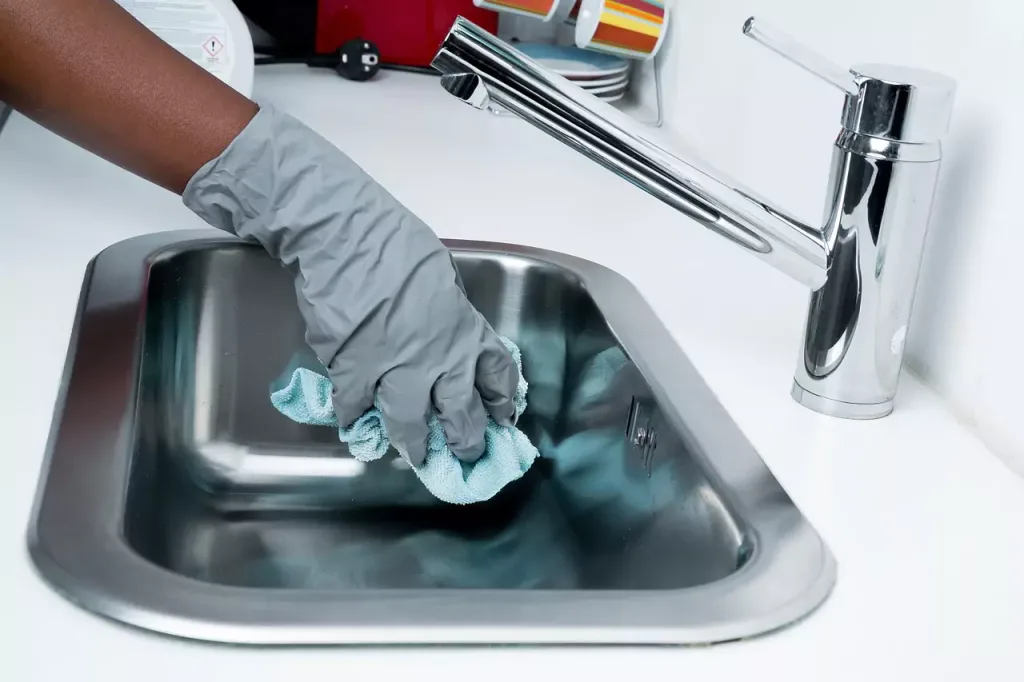Deep Cleaning vs. Regular Cleaning: Understanding Your Home’s Cleaning Needs
Deep Cleaning vs. Regular Cleaning: Understanding Your Home’s Cleaning Needs The issue of cleanliness in the home is not only an aesthetic one; it is also crucial to your own health, comfort, and overall well-being. But that doesn’t mean all the cleaning strategies are equitable. You may be aware of the terms “deep cleaning” and “regular cleaning” but may wonder what they mean and when to use each of them. This informative piece of content will guide you in recognizing these two cleaning models and the proper way to judge and decide the best one for you to use in your home. So what are you Waiting For lets begin: The Basics of Regular Cleaning Normal cleaning, also known as maintenance cleaning, is cleaning your home in an orderly manner, and it is the first step to the right path of tidiness. It is the process of carrying out certain routines that keep your living space organized, usually through simple and unemotional movements. The regular cleaning, however, can be likened to the daily body hygiene of your home, as you brush your teeth or comb your hair on a daily basis. What Does Regular Cleaning Include? The chores involved in regular cleaning are usually the following: Dusting of furniture, shelves, and other surfaces Sweeping and doing the mopping of the floors Vacuuming cleaned carpets and rugs Sanitizing the kitchen counters and appliances Embellishing bathroom fixtures (sinks, toilets, mirrors) Taking out the litter Making beds and general picking up Laundries When Should You Perform Regular Cleaning? Regular cleaning should be one of your weekly activities. Consequently, depending on your way of life and the size of your household, instead of every few days (like washing dishes and picking up) you might just do some other things weekly (e.g. vacuuming adequately or cleaning the bathrooms). The main target should be maintaining the particular and adequate level of cleanliness. Thus, it would be right not to leave aside the dirt and not to make objects even more cluttered with more dirt than they had get dirty. Benefits of Regular Cleaning Regular cleaning on a regular basis has a number of benefits: Making the house look orderly and nice No longer do you have to deal with cobwebs and other dirt accumulations now and then Fewer allergens will be scattered in your home environment Deliver a more peaceful atmosphere Assist you in the maintenance of proper organization of stuff Some could be coming from the mess in one’s home. Here is more information about the product in its description along with some technical terms. Forestalling Deep Cleaning When ordinary cleaning simply keeps your house clean, deep cleaning takes it one step higher and involves complete sanitation. Deep cleaning is a systematic and intense approach which addresses the hidden areas in the house and the areas which are usually left out from the regular cleaning schedule. It is akin to letting your home undergo a health check-up and remedying any underlying problems. What Does Deep Cleaning Involve? Among the activities, we can include the basic idea present throughout the cleaning process: Fight against the dissolution of grout and tiles in the kitchen A thorough cleaning behind and under the sofa and refrigerator Scrub all the baseboards, door frames, and window sills Cleaning the interiors of cabinets, drawers, and closets Dusting the undustable areas like ceiling fans and light fixtures Disinfecting frequently touched surfaces (doorknobs, light switches, remotes) Steam cleaning carpets and upholstery Wash all windows inside and out Managing the refrigerator and pantry (cleaning and organizing) Descente away of bathroom and kitchen water spots When Is Deep Cleaning Necessary? Certainly, the regular cleaning is not the thing to do several times a week but rather a habit to be cultivated in the long run. Deep cleaning you differently. Apart from regular home maintenance, a deep cleaning every 3 to 6 months would also add fresh vigor to the house. Before or after big events or holidays If you are buying a new apartment or you are selling yours The in-overbought household member may Benefits of Deep Cleaning Deep cleaning does not entirely rely on this area in your home and your health where several changes could be noticed, such as pure nature possibilities: Sanitarily covers all areas where practically no other contaminants, including viruses and bacteria, are present. Reduces allergens such as dust, pet dander, and mold It prevents your furnishings from getting dirty or from fading due to regular spills of various substances not cared for carefully, leaving you confused about what new product needs to be bought and much else. Cleans your house of any unwanted visitors by announcing to them that they are not welcome and that they may not stay long here. On the other hand, the punctuating wound in the entity of your dwelling is renovated in space and fosters rest and relaxation. Work can be reduced by arranging things neatly and keeping places tidy on a daily basis Comparing Deep Cleaning and Regular Cleaning For a clearer distinction between the two types, imagine two imaginary entities fighting, and analyze them on various points: Factor Regular Cleaning Deep Cleaning Frequency Daily to weekly Every 3-6 months Time Required 1-2 hours Several hours to a full day Focus Surface-level cleaning Detailed, thorough cleaning Effort Moderate Intensive Cost (if hiring professionals) Lower Higher Making the Right Choice: Deep Cleaning or Regular Cleaning? Whatever you choose, deep cleaning or standard cleaning, it actually depends on your own set of situation. The following are some of the variables to consider before making your choice: When to Choose Regular Cleaning: Your house is always in good condition so that little care by doing the regular routines is enough. You are determined to immediately remove any mess, dust, or pollutions daily or weekly and stay the house in a good condition. You would appreciate having a moxxx of ands-on time with your business and get the cleaning part as fast as possible without the loss










